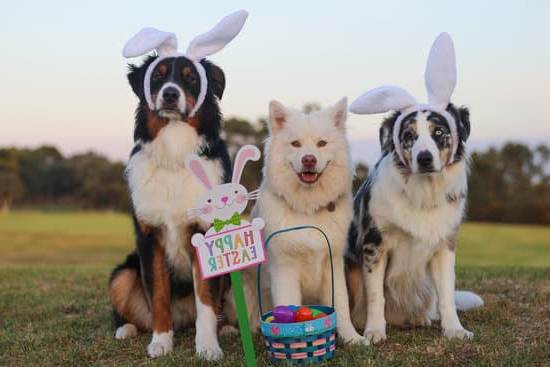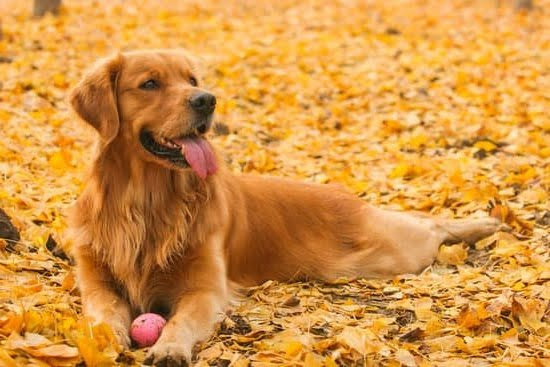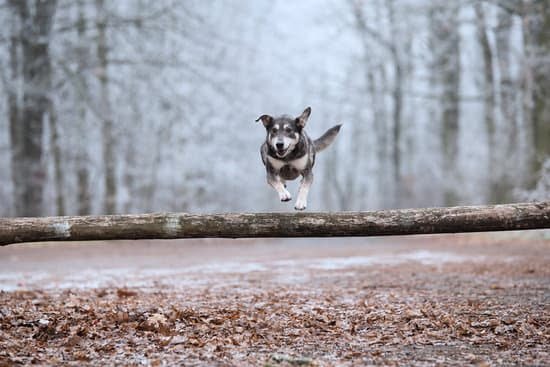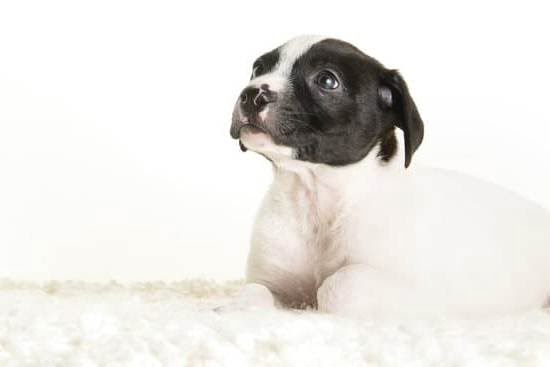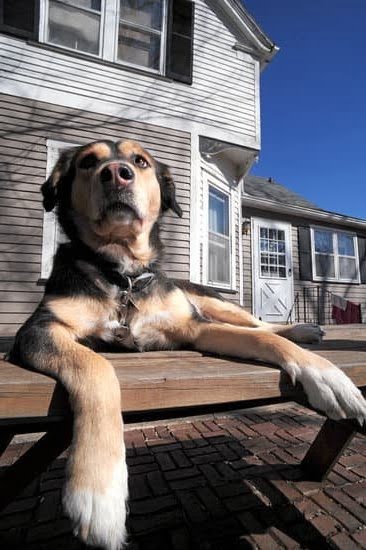Training a puppy to become a hunting dog is a rewarding and fulfilling journey for both the dog and its owner. Proper training not only enhances the dog’s natural instincts and abilities, but also ensures safety and success in the field. This introductory section will delve into the importance of training a puppy to become a hunting dog, as well as provide an overview of the process and commitment required.
Training a puppy to become a hunting dog has numerous benefits. Not only does it allow the owner to shape the dog’s natural instincts for hunting, but it also establishes control, discipline, and obedience in the field. A well-trained hunting dog becomes an invaluable partner, making every hunt safer and more efficient. It can also bring immense satisfaction as you witness your furry companion using its skills to track, retrieve, and perform other important tasks.
However, training a hunting dog is no easy task. It requires time, patience, and consistent effort from both the owner and the puppy. The whole process involves various stages such as socialization, basic obedience training, teaching retrieving skills, physical conditioning, introduction to gunfire and field training, as well as ongoing advanced training techniques. Each step contributes to building a strong foundation that molds a playful puppy into a skilled hunting companion.
Choosing the Right Puppy for Hunting
When it comes to training a puppy to become a hunting dog, choosing the right breed and characteristics is crucial. Not all dogs are suitable for hunting, as certain breeds have been specifically bred for their natural hunting abilities. The ideal breeds for hunting dogs include Labrador Retrievers, German Shorthaired Pointers, Golden Retrievers, and English Setters, among others.
Aside from the breed, there are specific characteristics you should look for in a puppy that indicate their potential as a hunting dog. One important characteristic is a high level of energy and endurance. Hunting dogs need to be able to keep up with long hours in the field without tiring easily. Additionally, puppies with a strong sense of smell or exceptional sight are more likely to excel in tracking game or pointing out birds.
It’s also essential to select a puppy with inherent hunting instincts. Some breeds have been developed over generations specifically for their hunting skills, making them more predisposed to succeed as hunting dogs. Even if you choose a mixed breed puppy, pay attention to their parents’ lineage or consult with an experienced breeder who can help determine if the puppy has potential as a hunter.
Remember that selecting the right puppy is only the first step in your journey towards training them as a skilled hunting dog. Once you have chosen your new companion, it’s important to invest time and effort into socialization and proper training techniques to maximize their full potential as a hunting partner.
Early Socialization
Socialization plays a crucial role in the development of a hunting dog. Early socialization sets the foundation for a well-rounded and well-behaved dog, which is essential in the hunting field. By exposing your puppy to different environments, people, and animals during their critical socialization period, you can help them become confident and adaptable hunting companions.
To start with early socialization, it is important to introduce your puppy to various sounds, sights, smells, and surfaces. This exposure helps them become accustomed to new experiences and prevents fear or anxiety later on. Take your puppy on walks in different environments such as busy streets, parks, woods, or even crowded markets. Gradually increase the level of stimulation so they can become comfortable in different settings.
Another important aspect of early socialization is introducing your puppy to other dogs and people. Arrange playdates with friendly and well-behaved dogs to allow them to learn proper social skills and develop positive interactions with their own species. Similarly, let your puppy meet different kinds of people – young children, adults, seniors – ensuring that all interactions are gentle and positive.
Positive reinforcement is key during this stage. Reward your puppy with treats or praise when they exhibit calm behavior or show confidence in new situations. It is crucial to create positive associations with these experiences so that your puppy learns that new environments and encounters are enjoyable rather than intimidating.
In summary, early socialization provides a strong foundation for your hunting dog’s behavioral development. Exposing them to various environments, people, and animals helps build confidence and adaptability. By taking the time to properly socialize your puppy from an early age, you are laying the groundwork for future success both in training and in the field as a skilled hunting dog.
Basic Obedience Training
Basic obedience training is a crucial step in the process of training a puppy to become a skilled hunting dog. Without a solid foundation of control and discipline, it can be challenging for a hunting dog to perform effectively in the field. In this section, we will outline the essential commands for a hunting dog, explain the importance of obedience training, and detail effective training methods to teach basic obedience skills.
One of the first commands that should be taught to a hunting dog is “sit.” This command teaches the puppy to stay in one place until given further instructions. It is an important skill for a hunting dog as it allows them to remain still and focused during hunts.
To train this command, start by holding a treat above the puppy’s head while giving the verbal command “sit.” As they look up at the treat, their natural instinct will be to sit down. Reward them with the treat immediately and praise them for following the command.
“Stay” is another crucial command that helps establish control over your hunting dog. This command teaches them to stay in one place until released or given permission to move. Begin by commanding your pup to sit, then extend your hand towards them while giving the verbal cue “stay.” Take a step back and if your puppy stays in place, reward them with treats and praise. Gradually increase the time they need to stay before releasing them.
“Come” or recall is an essential command for any well-trained hunting dog. This command ensures that your dog returns to you promptly when called, which is vital during hunts when you may need to redirect their focus or ensure their safety. Start training this command in short distances indoors where there are fewer distractions.
Call your puppy’s name followed by “come,” then use an excited tone and pat your thighs as you back away from them. When they come running towards you, reward them with treats and praise.
Remember that consistency and positive reinforcement are key when teaching basic obedience commands. Use treats, toys, and enthusiastic praise to reward your puppy for correctly following the commands. Keep training sessions short and frequent, as this helps maintain their attention and motivation. Gradually increase the level of difficulty as your hunting dog becomes more proficient in each command.
By establishing control and discipline through basic obedience training, you are laying a strong foundation for your hunting dog’s future success in the field. With patience, consistency, and positive reinforcement, you will help your pup develop the necessary skills to become a skilled hunting companion.
Introducing Retrieval Skills
One of the key skills that a hunting dog must have is retrieving. Whether it’s fetching game or retrieving objects, this skill is vital for a successful hunting experience. In this section, we will provide step-by-step instructions on how to train a puppy to fetch and emphasize the importance of reinforcing these behaviors.
When beginning the training process, it is important to start with small and lightweight objects that are easy for the puppy to handle. Begin by using toys or soft objects that they can hold in their mouth comfortably. Start by tossing the object a short distance away from you and encourage your puppy to retrieve it. Use positive reinforcement such as treats and praise when they successfully bring the object back to you.
Gradually increase the distance between you and the object as your puppy becomes more comfortable with fetching. It’s important to remember that patience is key during this stage, as some puppies may take longer than others to grasp the concept of retrieving. Consistency is also crucial – make sure to practice retrieving exercises regularly.
| Step | Description |
|---|---|
| Start with small objects | Begin by using lightweight objects that are easy for your puppy to hold in their mouth. |
| Toss and encourage retrieval | Toss the object a short distance away from you and use positive reinforcement when your puppy retrieves it. |
| Increase distance gradually | As your puppy becomes more comfortable, gradually increase the distance between you and the object. |
| Practice regularly | Consistency is key – make sure to practice retrieving exercises regularly to reinforce the behavior. |
By consistently practicing these retrieval techniques, your puppy will gradually develop a strong foundation for retrieving skills. It’s important to remember that every dog learns at their own pace, so be patient and adjust your training methods accordingly. With time and effort, your puppy will become proficient in fetching, an essential skill for a successful hunting dog.
Conditioning and Physical Training
Proper conditioning and physical training are essential for building the endurance and stamina of a hunting dog. Hunting dogs need to be able to endure long hours in the field, often traversing difficult terrains while maintaining their focus and energy. This section will discuss the importance of conditioning a hunting dog and provide various exercises and activities to improve their endurance.
Importance of Conditioning
Conditioning is crucial for preparing a hunting dog to handle the physical demands they will encounter during hunts. It helps build strength, endurance, and stamina, enabling them to work tirelessly in challenging conditions. Proper conditioning also reduces the risk of injuries, increases a dog’s overall health and fitness level, and enhances their performance in the field.
Exercises and Activities for Endurance
There are several exercises and activities that can help improve a hunting dog’s endurance. Regular walks or jogs on different terrains such as hills or fields are an excellent way to build overall stamina. Gradually increasing the duration and intensity of these exercises will gradually challenge their endurance levels.
Swimming is another fantastic exercise for hunting dogs as it is low impact on joints while providing a full-body workout. Swimming can also help build muscle strength, improve cardiovascular health, and increase endurance.
In addition to regular exercise routines, incorporating games like playing fetch or using flirt poles can enhance a dog’s endurance while keeping them mentally stimulated. These activities require bursts of intense activity followed by short recovery periods, mimicking the stop-and-go nature of hunting scenarios.
Gradual Progression
When it comes to conditioning a hunting dog, gradual progression is key. Start with shorter distances or less intense exercises and gradually increase both distance and difficulty over time. Pushing too hard or too fast can lead to fatigue or injuries, so it’s important to monitor your dog’s abilities closely.
It’s essential to consult with your veterinarian before starting any conditioning program to ensure your dog is physically fit and healthy for the activities you have planned. They can provide guidance on specific exercises and set realistic goals based on your dog’s age, breed, and overall health.
By focusing on conditioning and physical training, you are setting your hunting dog up for success in the field. Building their endurance and stamina will enable them to perform at peak levels during hunts, ensuring they are able to keep up with the demands of the job.
Introduction to Gunfire and Field Training
Introducing a Puppy to Gunfire and Loud Noises
One crucial aspect of training a puppy to become a hunting dog is preparing them for the sounds and noises encountered during a hunt. Introducing a puppy to gunfire and other loud noises in a controlled and gradual manner is essential to prevent fear or anxiety-related behavior. It’s important to note that not all dogs may be naturally comfortable with loud noises, so patience and consistent training are key.
To begin the process, start by exposing your puppy to milder sounds like clapping or tapping on objects. Gradually increase the intensity of the noise over time, ensuring that your puppy remains calm and focused. Reward them with treats, praise, and playtime for exhibiting calm behavior during these training sessions.
Once your puppy is comfortable with mild noises, gradually introduce them to louder sounds such as cap guns or starter pistols. Start at a distance where the sound is barely audible, and slowly move closer as your puppy becomes more accustomed without showing signs of fear or distress. Continue rewarding positive behavior throughout this process.
Field Training Exercises for Simulating Real Hunting Scenarios
In addition to introducing puppies to loud noises, it’s important to simulate real hunting scenarios during their training process. Field training exercises help puppies develop the necessary skills and instincts required for successful hunts. These exercises also provide an opportunity for you as the trainer to assess your puppy’s progress and make any necessary adjustments to their training program.
One effective field training exercise you can incorporate involves using dummies or game birds that mimic actual targets found in hunting situations. Teach your puppy to search effectively, locate the dummy or bird, retrieve it properly, and deliver it to you upon command. This exercise helps develop their tracking abilities while reinforcing obedience commands such as “retrieve” and “drop”.
Another valuable field training exercise is creating different hunting scenarios in various environments. Practice walking through tall grass, swimming across small bodies of water, and navigating through thick undergrowth. This exposure helps puppies become familiar with the challenges they may encounter during hunting trips and prepares them for various terrains.
Building Confidence and Focus in Different Hunting Environments
Building a hunting dog’s confidence and focus is crucial for their success in different hunting environments. Exposure to a variety of terrains, weather conditions, and hunting scenarios will help puppies adapt quickly and maintain concentration even in challenging situations.
To build confidence, gradually introduce your puppy to different hunting environments such as forests, open fields, or wetlands. Start with familiar territory before progressing to new locations. Allow them time to explore and become comfortable with these surroundings while maintaining control through obedience commands.
Maintaining focus is equally important. Engage your puppy in activities that require mental stimulation and concentration, such as scent detection exercises or hiding training dummies. These activities teach puppies to remain focused on the task at hand amidst distractions, honing their ability to stay attentive even during the excitement of a real hunt.
Remember, patience and consistency are crucial when introducing puppies to gunfire and field training. Tailor the training sessions to suit your puppy’s individual needs while gradually increasing their exposure to different sights, sounds, and scenarios. With time and effort invested in this aspect of training, you’ll be setting a solid foundation for your puppy’s future success as a skilled hunting dog.
Continuing Education
Once your puppy has mastered the basic obedience commands and retrieval skills, it is important to continue their education by introducing advanced training techniques. These techniques will enhance your hunting dog’s skills and take them to the next level of proficiency. Advanced training not only improves their abilities in the field but also deepens their bond with you as their handler.
One effective technique for advancing your hunting dog’s training is using scent detection exercises. This involves teaching your dog to identify and track specific smells, such as game birds or other wildlife. Scent detection training can be done through hiding scented objects or using special scent-infused materials designed for this purpose. This skill is invaluable for a hunting dog as it allows them to locate wounded game that may try to hide or escape.
Another advanced technique is introducing your hunting dog to water retrieves. Some hunting environments, such as marshes or lakes, require dogs to swim and retrieve game from water sources. To prepare your dog for these scenarios, gradually introduce them to water by starting with shallow areas and gently encouraging them to enter and retrieve objects. Gradually increase the depth as your dog gains confidence and comfort in the water.
In addition to advanced techniques, it is important to provide refreshers for your hunting dog’s training periodically. Just like humans, dogs benefit from revisiting previously learned skills to reinforce their training. This can be done by incorporating short refresher sessions into regular exercise routines or during dedicated training sessions. By reviewing commands such as sit, stay, and heel, you are ensuring that your hunting dog retains their knowledge and responds reliably in real-world hunting situations.
Remember that patience and consistency are key when implementing advanced training methods or refresher sessions. It is important not to rush the process and always provide positive reinforcement for desired behaviors. Celebrate even small successes during training sessions and make sure each interaction with your hunting dog is enjoyable.
By continuing their education through advanced training techniques and refresher sessions, you are setting your hunting dog up for success in the field. The journey of training a puppy into a skilled hunting dog is an ongoing one, and it is through these continuous efforts that you will see your dog reach their full potential. So, embrace the process, stay committed, and watch as your four-legged companion becomes a highly capable hunting partner.
Conclusion
In conclusion, the journey of training a puppy to become a skilled hunting dog is one that requires dedication, patience, and commitment. It is not just about teaching a dog basic commands or retrieving skills; it is about building a strong foundation of socialization, obedience, endurance, and field training.
Throughout this process, there are challenges to overcome and milestones to celebrate. However, the rewards of developing a deep bond with your hunting companion and witnessing their growth and success in the field are immeasurable.
Training a puppy to become a hunting dog is an opportunity for both personal growth and the development of a remarkable partnership. It requires investing time in understanding your dog’s breed characteristics, selecting the right puppy with hunting instincts, and providing early socialization experiences that shape their behavior for life. Basic obedience training lays the groundwork for control and discipline when navigating various hunting situations.
As you progress in your training journey, introducing retrieval skills becomes crucial for any successful hunting dog. Teaching them to fetch reliably will enhance their abilities on the field significantly. Conditioning and physical training are also essential components as it builds endurance and stamina necessary for long hours spent in the wild. By gradually increasing intensity and varying exercises, you can prepare your dog physically for any demanding hunting scenario.
Once your dog has acquired these foundational skills, introducing them to gunshots and loud noises becomes necessary preparation for actual hunts. Field training exercises further simulate real-life scenarios allowing them to gain confidence and focus while encountering different terrains or elements during hunts. The advanced training techniques explored throughout this process aim to enhance their skills continually.
Ultimately, embarking on this fulfilling journey of training a puppy into a skilled hunting dog will not only create an irreplaceable bond between you two but will also provide you both with countless adventures in nature. Remember that every step taken during this journey is significant – from selecting the right breed to ongoing education sessions – as they contribute to shaping your pup into an excellent hunting companion.
So, embrace this special opportunity, be patient, and always cherish the progress made along the way. May your training adventures be fruitful, and may you enjoy many successful hunts with your four-legged partner by your side.
Frequently Asked Questions
What age should you start training a puppy to hunt?
The age at which you should start training a puppy to hunt can vary depending on the breed and individual development. Generally, it is recommended to begin introducing basic obedience training and socialization as early as 8 weeks old. However, when it comes to specific hunting training, most experts suggest waiting until the puppy is around 6 months old or older before starting formal hunting training.
This allows the puppy to develop physically and mentally, gaining foundational skills and maturity necessary for more advanced hunting exercises. It is essential to be patient during this initial period of training and focus on building a strong bond with your puppy.
Can you train a 2 year old dog to be a hunting dog?
Yes, you can train a 2-year-old dog to be a hunting dog. While it may take slightly more effort compared to starting with a young puppy, dogs at this age are still capable of learning new skills with the right approach and consistency in training techniques.
Whether the dog has had previous exposure to hunting-related activities or not, it’s important to assess their temperament, physical abilities, and overall willingness to learn and cooperate. Tailor your training sessions according to their individual needs, gradually exposing them to different aspects of hunting such as scent work or retrieving exercises while ensuring positive reinforcement is used consistently throughout the process.
How do you tell if a puppy will be a good hunting dog?
Determining if a puppy will be a good hunting dog requires careful observation of several key factors. First and foremost, consider the breed’s inherent traits related to hunting abilities since certain breeds are naturally more inclined towards specific types of game or tasks. Look for signs of natural instincts such as prey drive, retrieving instinct, high energy levels, alertness, and an eagerness to explore scents or chase moving objects during playtime.
A trainable disposition with a good attention span is also crucial for future success as a hunting companion. While no guarantees can be made about a puppy’s ultimate potential as a hunter at an early age, these initial indications can help guide your expectations and decisions regarding their training and development. Proper socialization, exposure to different environments, and positive reinforcement-based training methods will play significant roles in nurturing a puppy’s hunting potential.

Welcome to the blog! I am a professional dog trainer and have been working with dogs for many years. In this blog, I will be discussing various topics related to dog training, including tips, tricks, and advice. I hope you find this information helpful and informative. Thanks for reading!

